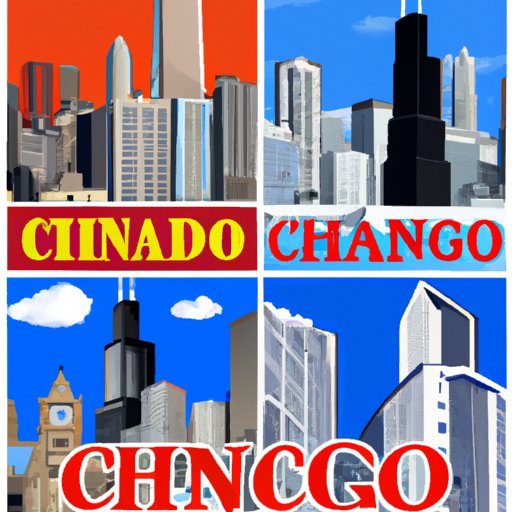Why is Chicago the Windy City?
Chicago is known around the world as the “Windy City.” Tourists and residents alike enjoy the brisk winds that blow off Lake Michigan and through the city’s streets. But how did Chicago earn this famous nickname? In this article, we’ll explore the various factors that contribute to Chicago’s windiness, from the meteorological to the cultural and historical. By the end, you’ll have a deeper appreciation for what makes the “Windy City” so special.
The Meteorological Explanation
At its most basic level, Chicago is windy because of its location on the shores of Lake Michigan. The lake has a strong effect on the city’s climate, leading to cooler temperatures in the summer and warmer temperatures in the winter. The difference in temperature between the land and the water leads to wind, which can gust through the city’s streets at speeds of up to 30 miles per hour. Additionally, Chicago’s flat landscape makes it more prone to wind than cities with more varied terrain.
Interestingly enough, Chicago’s nickname as the “Windy City” might have been popularized by a marketing campaign in the early 20th century. According to some historians, the term “Windy City” was used by newspaper reporters who were trying to describe Chicago’s “blowhard” politicians, known for their long-winded speeches. However, the term really took off in the 1930s when the city started using it in promotional materials.
The Historical Perspective
While Chicago’s windiness is a natural phenomenon, the city’s nickname is also rooted in its political history. During the late 19th century, Chicago was renowned for its corruption and political machine. The nickname “Windy City” was thought to have originated with an article in the New York Sun in 1890, which described the city as a place where politicians were full of hot air. Other cities like Cincinnati and St. Louis used the term to mock Chicago at the time, but eventually, the nickname became a point of pride for the city.
The rivalry between Chicago and other cities during this time was intense, and the “Windy City” nickname was just one aspect of this competition. Chicago was trying to establish itself as a major player on the national stage, and its politicians and business leaders were determined to put the city on the map. While the nickname was initially meant as an insult, it quickly became a symbol of Chicago’s resilience and determination.
The Cultural Impact
Today, the “Windy City” nickname is engrained in Chicago’s cultural identity. It’s a source of pride for many residents who view it as a symbol of their city’s strength and character. Chicagoans are known for their toughness and resilience in the face of adversity, a trait that is reflected in the city’s nickname.
The nickname has also had an impact on the city’s arts and entertainment scene. From movies like “The Blues Brothers” to songs like Frank Sinatra’s “My Kind of Town,” the “Windy City” has inspired countless cultural references over the years. It’s even been parodied in popular TV shows like “The Simpsons,” cementing its place in American popular culture.
The Sports Connection
Of course, one of the most famous connections between Chicago’s windiness and its culture is through its sports teams. From the Chicago Bears football game in 1985, where the team famously played in brutal winter conditions, to baseball games at Wrigley Field where the wind can have a huge impact on the trajectory of a ball, Chicago’s weather is a defining factor in the city’s sports culture.
The Urban Legend Angle
Finally, we have to mention the various myths and legends that surround Chicago’s nickname. Some people believe that “Windy City” was actually a reference to the Great Chicago Fire of 1871, which was thought to have been fueled by strong winds. Others believe that the nickname came from Chicago’s expansive stockyards, which allegedly produced so much wind that it could knock a person off their feet. There’s even a theory that the name comes from the city’s gangsters, who were known for their “windy” and boastful ways. While these explanations are fun to consider, the reality is that the nickname is likely a combination of all the factors we’ve discussed above.
Conclusion
In conclusion, Chicago’s nickname as the “Windy City” is a multi-faceted phenomenon that reflects the city’s history, geography, and culture. From its location on the shores of Lake Michigan to its resilience in the face of political corruption, the “Windy City” has come to symbolize everything that makes Chicago great. Whether you’re a resident of the city or a visitor passing through, take a moment to appreciate the brisk winds that blow through the streets – they’re a reminder of everything that makes the “Windy City” so special.
